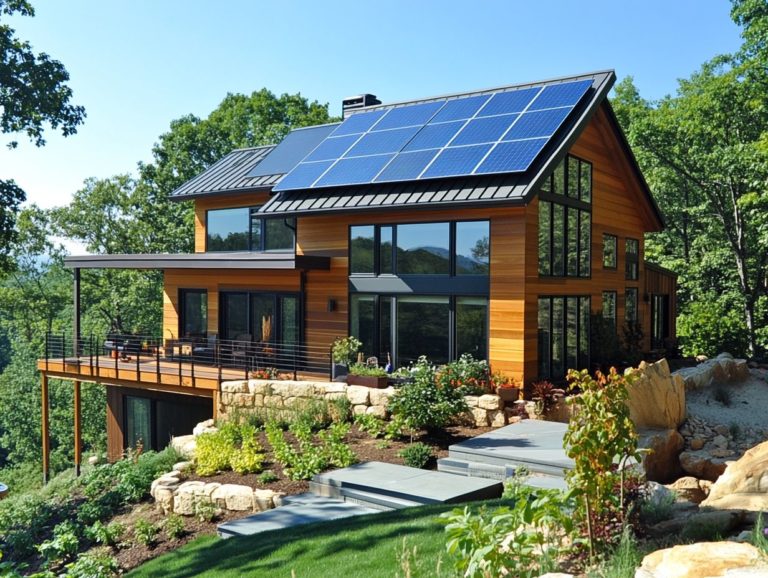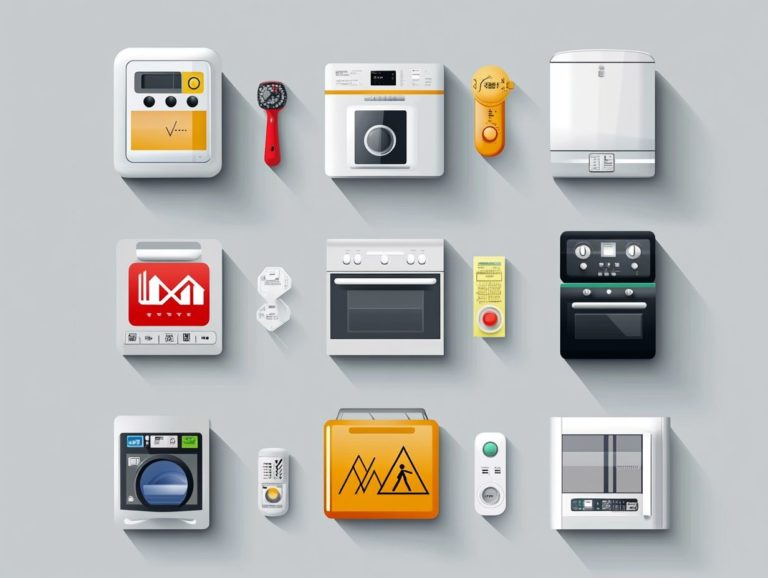How Can I Optimize My Heating System?
Your heating system is essential for keeping your home comfortable, particularly during the chillier months.
By familiarizing yourself with the various types and components of heating systems, you can easily identify signs of inefficiency, such as skyrocketing energy bills and uneven warmth throughout your space.
This article delves into strategies for improving your system through regular maintenance and thoughtful upgrades, offering additional tips for enhancing energy efficiency.
It also tackles common issues and their solutions, ensuring your home remains a cozy haven throughout the winter season.
Contents
- Key Takeaways:
- Understanding Your Heating System
- Signs of an Inefficient Heating System
- Optimizing Your Heating System
- Additional Tips for Energy Efficiency
- Common Heating System Problems and Solutions
- Frequently Asked Questions
- How Can I Optimize My Heating System?
- What are some ways to optimize my heating system?
- How often should I get my heating system serviced?
- What are the benefits of upgrading to a programmable thermostat?
- Is it important to properly insulate my home for optimal heating?
- What are some signs that my heating system may need optimization?
- Can I optimize my heating system on my own or do I need a professional?
Key Takeaways:
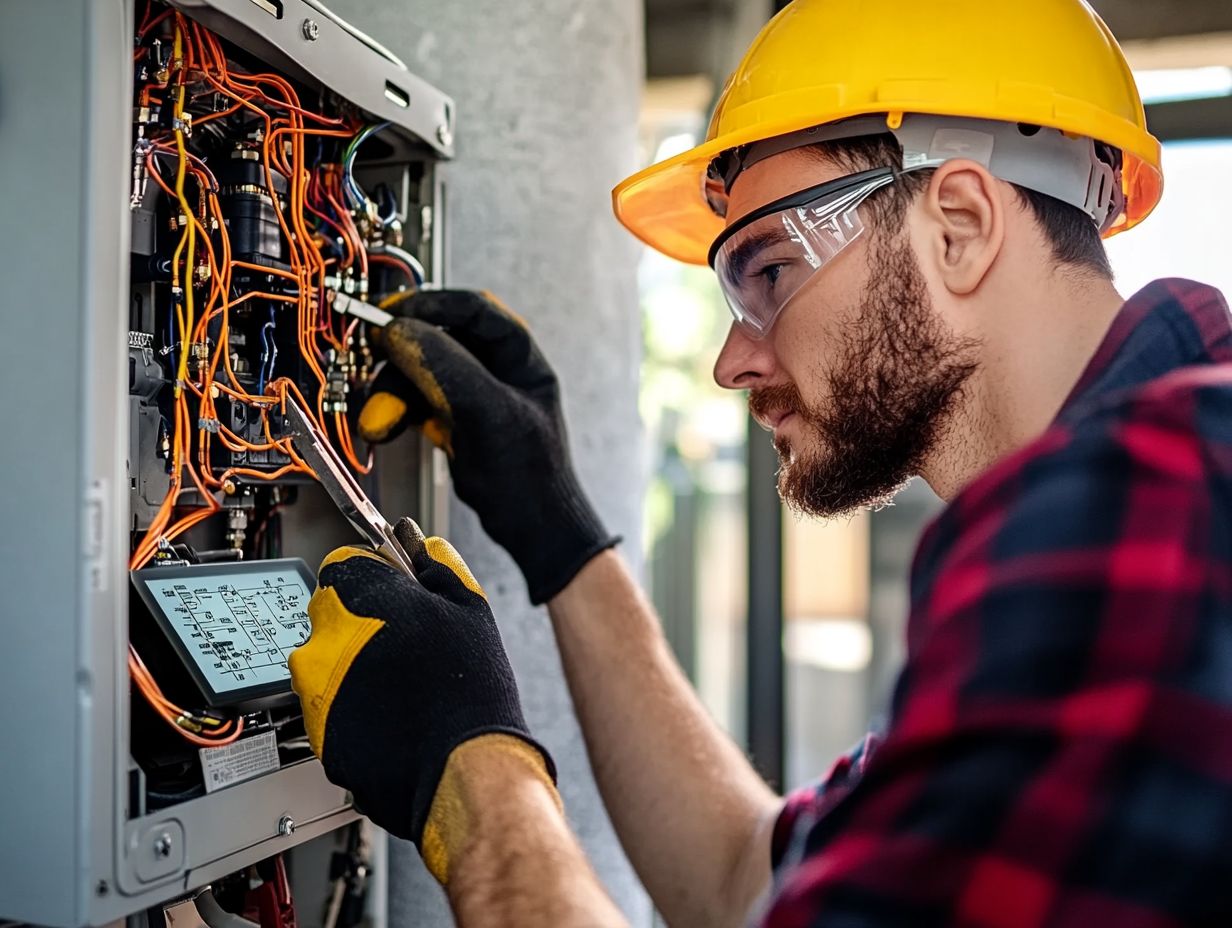
- Understand the different types of heating systems to optimize yours.
- Watch for signs of inefficiency, like high energy bills and uneven heating.
- Regular maintenance and upgrades are essential for energy efficiency.
Understanding Your Heating System
Understanding the details of your heating system is vital for ensuring your home remains a sanctuary of comfort and energy efficiency. A well-tuned heating system doesn t just deliver consistent warmth; it minimizes energy costs and elevates air quality.
For homeowners in Colorado and beyond, it s important to become well-acquainted with the different types and components of heating systems, such as gas furnaces, heat pumps, and smart thermostats.
By understanding how your heating system operates, you can adopt effective maintenance strategies and incorporate energy-saving features that can dramatically reduce your energy bills while enhancing reliability.
Types of Heating Systems
Various types of heating systems are designed to cater to your unique needs as a homeowner, including gas furnaces, heat pumps, and modern HVAC solutions. Each of these systems serves a specific purpose, tailored to different climates and personal preferences.
For instance, gas furnaces are often valued for their ability to deliver quick and powerful heating, making them a favored choice in colder regions.
Conversely, heat pumps offer an energy-efficient solution by transferring heat instead of generating it, which makes them ideal for milder climates where extreme cold is less of an issue.
Modern HVAC systems seamlessly integrate heating and cooling, enhancing your overall comfort while optimizing energy usage. By understanding these distinctions, you can choose a system that not only fulfills your heating requirements but also fits your budget, potentially saving you on heating costs throughout the winter months.
Components of a Heating System
The components of your heating system are essential for achieving optimal performance and energy efficiency. They primarily consist of the thermostat, air ducts, and various heating mechanisms.
Think of the thermostat as your system’s command center. It regulates the temperature by signaling when to activate or deactivate the heating, directly influencing both your comfort and energy usage.
Meanwhile, the air ducts play a crucial role in distributing warm air throughout your space, making their condition vital for efficient airflow.
The different heating mechanisms, like furnaces or heat pumps, work by converting energy into heat. Each of these requires proper maintenance to operate at peak performance.
Regular upkeep, including routine inspections by certified experts, is key; it ensures that these critical components work in harmony, preventing costly breakdowns and extending the lifespan of your heating system.
Signs of an Inefficient Heating System
Recognizing the signs of an inefficient heating system is essential for homeowners who wish to avoid soaring energy bills and the discomfort that comes with inconsistent heating. Keep an eye out for telltale indicators, such as unexpected spikes in your heating costs, drafts lurking in your living spaces, and an overall struggle to maintain your desired temperature.
These issues often signal underlying problems that require your immediate attention. Air leakage and faulty thermostats can dramatically affect your heating system s performance and efficiency. Keep a close watch on these signs to ensure your home stays cozy and budget-friendly!
Don’t wait until winter arrives; start optimizing your heating system today!
High Energy Bills
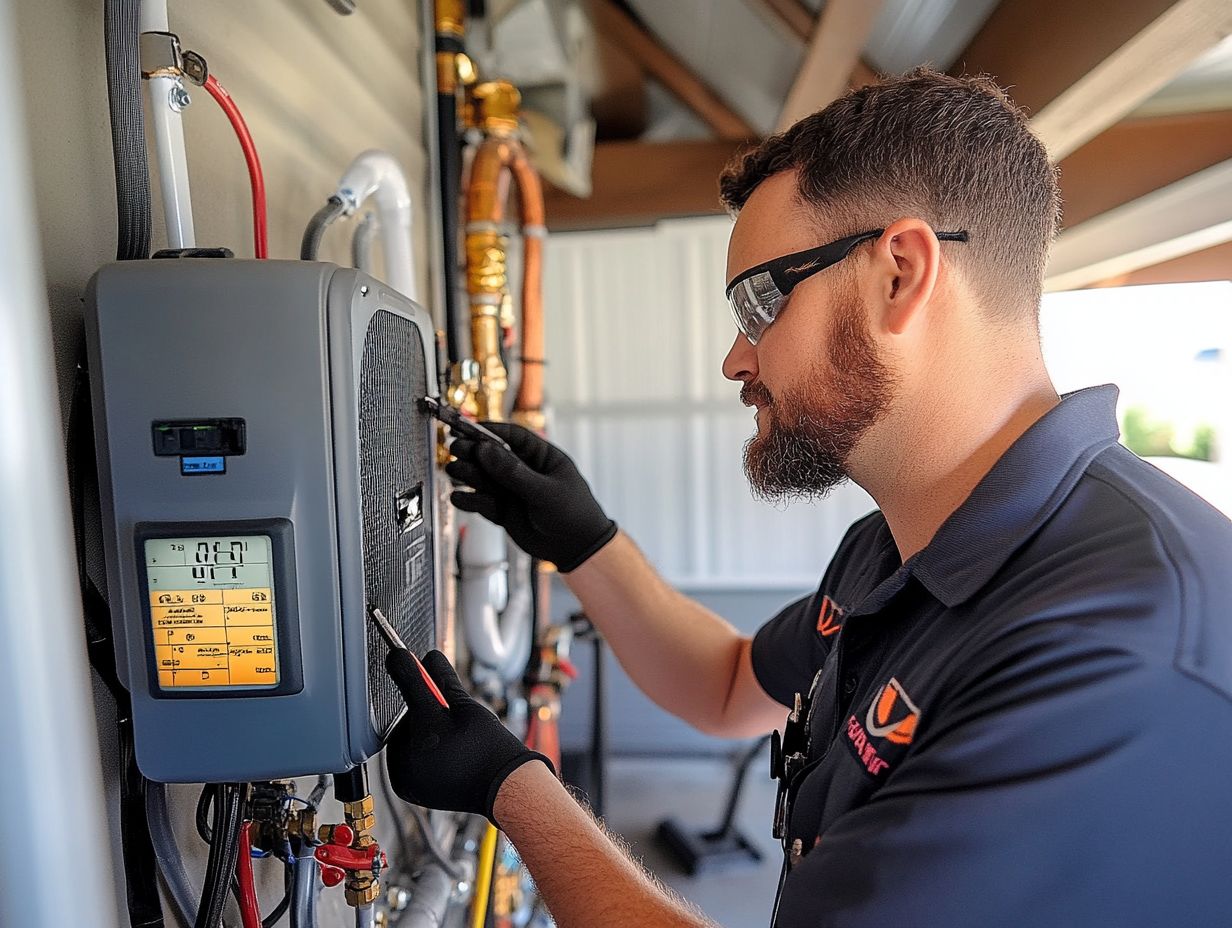
High energy bills can be a glaring red flag, signaling that your heating system might not be performing at its best. Unexpected spikes in your monthly utility costs often indicate issues like broken thermostats that struggle to regulate temperatures, leading to unnecessary heating.
Inadequate insulation could also be the culprit, allowing heat to escape and forcing your system to overwork itself to keep things cozy. This drives up your energy expenses and creates an uncomfortable environment.
Addressing these inefficiencies is essential. Regular maintenance checks can help ensure your thermostats are functioning properly and that your insulation is up to par. Consider upgrading to programmable thermostats or investing in energy-efficient insulation materials. These upgrades can significantly boost your energy efficiency, ultimately reducing heating costs and enhancing your overall comfort at home.
Inconsistent Heating
Inconsistent heating throughout your home can be quite the dilemma. This often arises from broken thermostats or issues within your heating system. Such discrepancies can leave some rooms toasty warm while others remain uncomfortably chilly, making your living space less inviting.
More often than not, this problem stems from thermostats that struggle to accurately assess the temperature in various areas. Inadequate insulation can exacerbate the situation, allowing precious heat to escape and resulting in uneven warmth.
To tackle these challenges, consider upgrading to smart thermostats that adapt to your specific preferences. Ensure that your walls and attics are properly insulated. This keeps the heat contained and significantly enhances your comfort and energy efficiency.
Optimizing Your Heating System
Optimizing your heating system can transform your home into a cozy haven! It is crucial for attaining peak energy efficiency and maintaining a consistent warmth throughout your home. This journey begins with regular maintenance and a thorough system analysis, setting the stage for a comfortable living environment.
Regular Maintenance
Regular maintenance of your heating system is essential for ensuring its longevity and optimal performance. Schedule inspections with NATE-certified professionals experts who have proven their knowledge in heating and cooling systems.
In addition to professional checks, prioritize changing your filters regularly. Ideally, do this every one to three months. This simple step enhances airflow and helps maintain the quality of the air you breathe indoors. Don’t overlook duct cleaning; it plays a crucial role in preventing dust and allergens from circulating throughout your home.
By following these maintenance tips, you boost your system’s efficiency and save on energy costs over time. A well-maintained heating system consumes less energy, which translates to lower utility bills and a smaller carbon footprint. If you’re looking for more ways to enhance your home’s energy efficiency, check out this guide on making your home more energy efficient, benefiting both your wallet and the environment.
Upgrading to a More Efficient System
Upgrading to a more efficient heating system can dramatically reduce your energy costs and enhance your overall comfort. This investment is well worth considering as a homeowner.
With the latest advancements in technology, modern heating systems boast innovative features like smart thermostats. These enable precise temperature control tailored to your individual schedule. To understand how these systems work, you can explore how energy efficient heating systems compare. Manage your heating from virtually anywhere, effectively minimizing unnecessary energy consumption.
Older systems tend to operate at a constant temperature, leading to inefficient energy use and inflated bills. Compare the costs yourself! You ll see that modern systems not only boost comfort but also save you money over time.
Additional Tips for Energy Efficiency
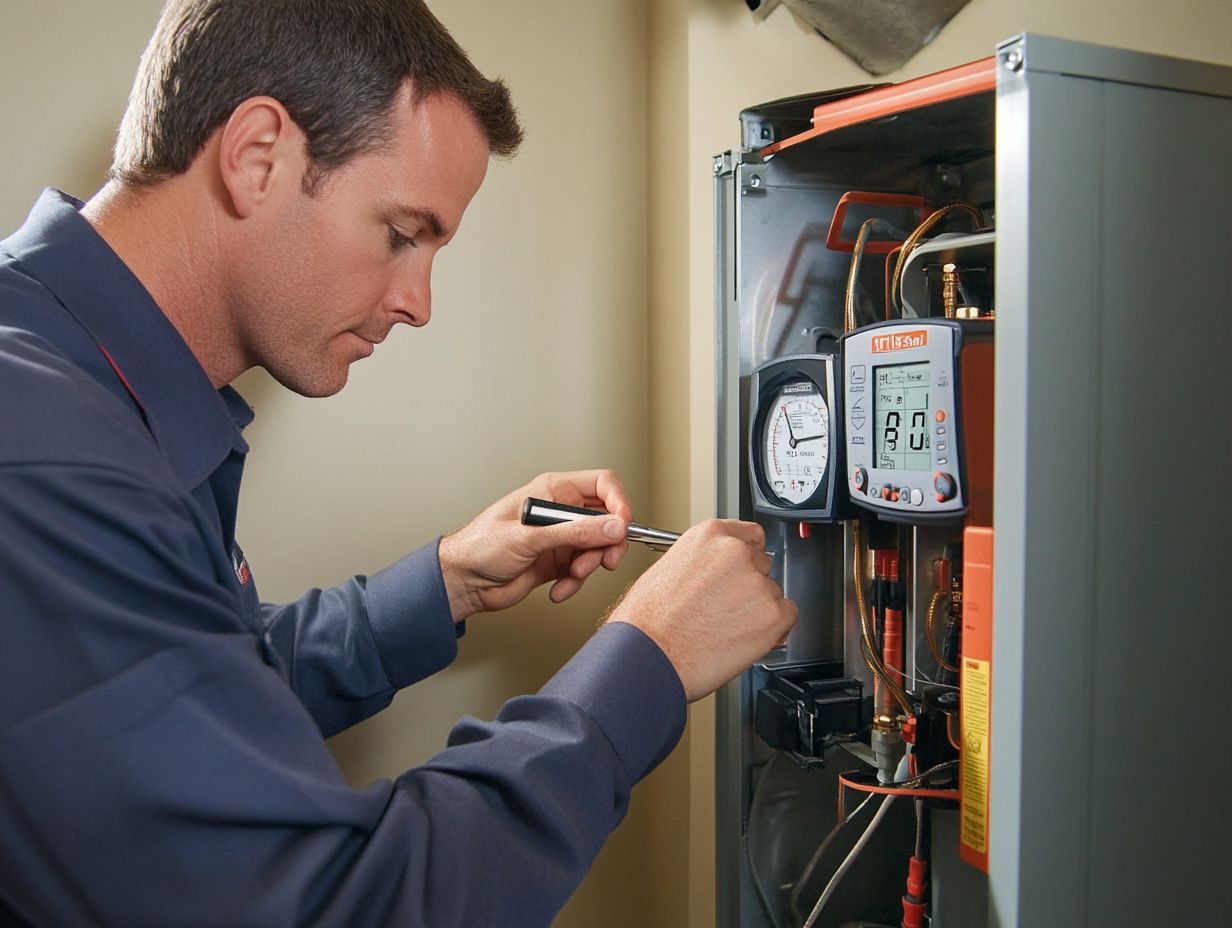
Want to make your home more energy-efficient? Enhancing energy efficiency in your home goes beyond merely optimizing your heating system. It requires a complete method that incorporates effective insulation and weatherproofing techniques, along with the integration of modern smart thermostats.
This multifaceted strategy not only reduces energy consumption but also elevates your comfort and sustainability.
Insulation and Weatherproofing
Proper insulation and effective weatherproofing are essential for enhancing energy efficiency and lowering heating costs in your home. By selecting the right materials and methods, you can significantly improve thermal performance.
Common insulation types include:
- fiberglass batts
- spray foam
- cellulose
Each offers unique properties suited for specific areas of your house. For example, spray foam is excellent for sealing gaps and provides both insulation and air barrier qualities, while fiberglass is favored for its affordability and ease of installation.
Weatherproofing techniques like caulking around windows and doors help minimize air leakage. This ensures a more stable indoor temperature. To maximize your energy savings, regularly assess the condition of your insulation and consider professional evaluations to pinpoint any weaknesses.
Smart Thermostat Usage
Utilizing a smart thermostat can significantly enhance your energy efficiency and improve comfort control. This allows you to customize your heating system to meet your specific needs.
This innovative device features programmable settings that you can adjust according to your daily schedule. It ensures that energy is utilized only when necessary. The convenience of accessing and modifying settings remotely through a smartphone app takes comfort to the next level! You can monitor your home’s temperature and energy consumption from virtually anywhere.
As a result, smart thermostats not only help you achieve notable energy savings by reducing unnecessary heating but also optimize the overall performance of your heating system, making it more responsive and reliable. For more insights on this topic, consider choosing the right energy-efficient heating system to transform your living space into a more sustainable and comfortable environment!
Common Heating System Problems and Solutions
Common heating system issues can create discomfort and inefficiencies in your home. However, with the right solutions and maintenance routines, these problems are often well within your control.
Identifying and Addressing Issues
Identifying and addressing issues within your heating system is essential for maintaining optimal performance and ensuring energy efficiency. You can take several proactive steps to diagnose common problems, especially when it comes to drafts and air leakage.
Begin by inspecting your windows and doors for gaps. A simple hand test or even a lit candle can help you detect subtle air movement. If you feel drafts, consider applying weatherstripping or caulk to seal those pesky leaks.
Check for inadequate insulation in your home to boost heating efficiency. It s also wise to evaluate the performance of your vents and registers to make sure they aren t obstructed.
Engaging in regular maintenance and employing these straightforward troubleshooting techniques can create a more comfortable living environment while trimming down those energy bills.
Frequently Asked Questions
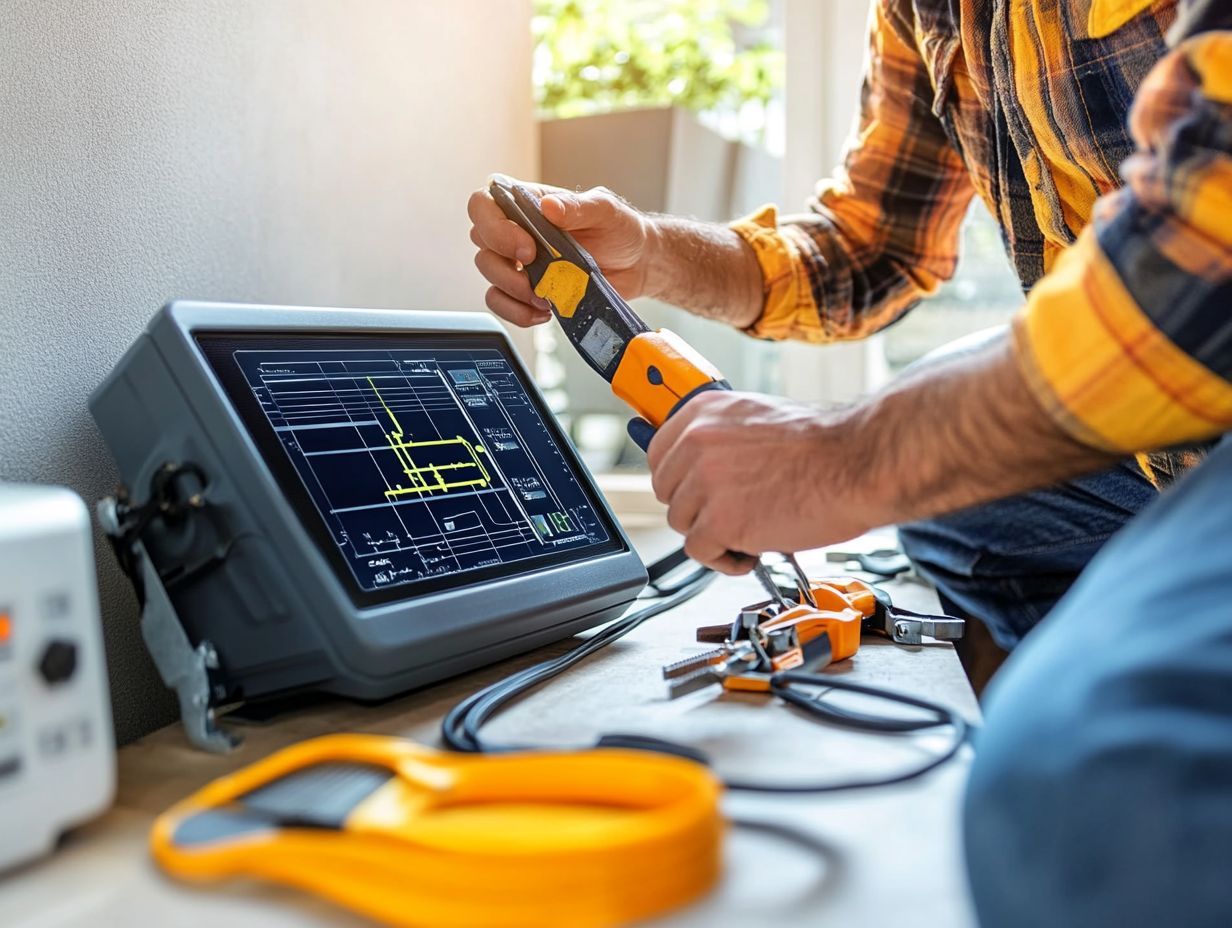
How Can I Optimize My Heating System?
Optimizing your heating system is an important step towards energy efficiency and cost savings. Here are some frequently asked questions about optimizing your heating system:
What are some ways to optimize my heating system?
There are several ways you can optimize your heating system, such as getting regular maintenance, upgrading to a programmable thermostat, and properly insulating your home.
How often should I get my heating system serviced?
It is recommended to get your heating system serviced at least once a year to ensure it is running efficiently and to catch any potential issues before they become major problems.
Start making these changes today to enjoy a cozier home and lower energy bills!
What are the benefits of upgrading to a programmable thermostat?
A programmable thermostat lets you schedule your heating system. It runs only when needed, saving energy and lowering your heating bills.
Is it important to properly insulate my home for optimal heating?
Proper insulation is key to optimizing your home s heating. It keeps warmth inside, making your heating system work less and lowering your energy bills.
What are some signs that my heating system may need optimization?
Notice uneven heating? Strange noises? A sudden rise in energy bills? These could be signs that your heating system needs optimization.
Can I optimize my heating system on my own or do I need a professional?
You can handle simple tasks like changing air filters. However, for major optimization, it s best to call a professional for safety and correctness.

